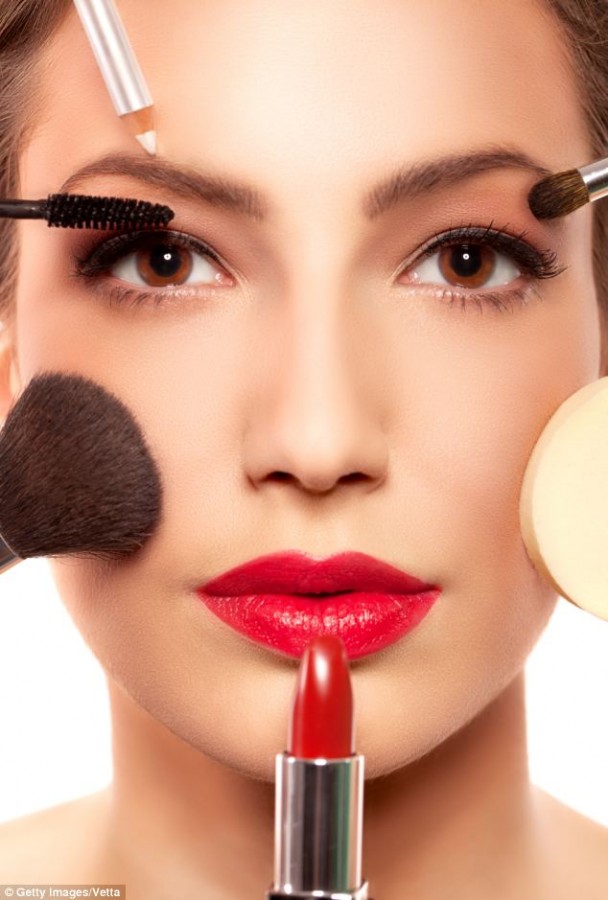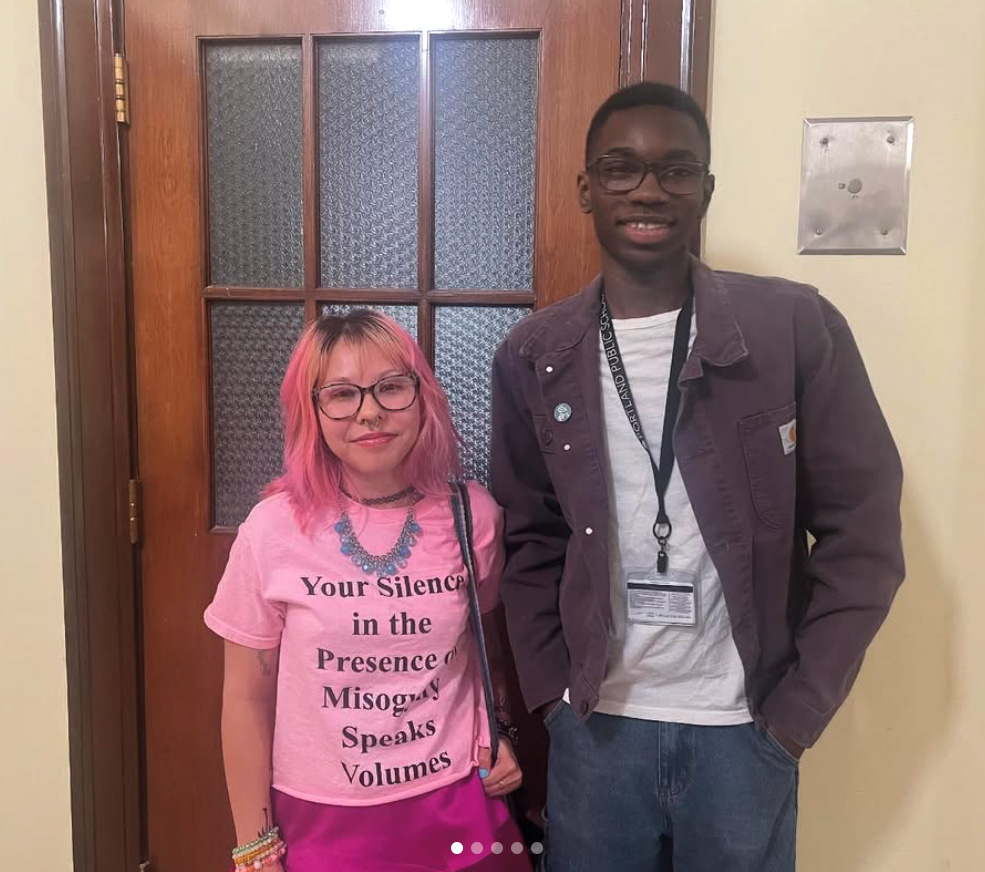The Beauty Bias
Clarion photo © Getty Images/Vetta
Red lipstick, eyeliner, mascara, and blush equate competence? These standards are getting ridiculous. Daily Mail photo.
October 15, 2015
It’s no secret that our society places merit upon beauty, artificial or otherwise, and has extremely rigid and uniform standards for femininity. Beautification in our culture is not just an accessory of nature, it’s an expectation. What sells is cosmetic, and if a woman looks less than made-up, she is assumed to be less competent, less friendly, and less responsible according to collective studies. In some cases, she even earns a lesser amount based on her appearance compared to her makeup-heavy counterparts. This is the beauty bias.
Recently, a girl told me that she hardly recognized me with all the makeup I was wearing. That morning, I had applied only a layer of mascara alongside a thin line of black eyeliner on both eyes, yet she still chose to negatively objectify my appearance. While this was none of her business, the institutionalized discrimination intertwined with beautification expectations enabled her to do so without question. We see this fundamental association in every volume available to our speculation. We subconsciously make snap judgments about everything we lay eyes on, and sadly these two-second appraisals are primarily based on appearance.
According to the New York Times, a 2011 study run by Proctor and Gamble found that the perception of competence, responsibility, and trustworthiness correlate with wearing makeup. The study discovered that when in the workplace, women received more respect and trust when they wore a noticeable application of makeup, provided that they didn’t overdo it. When wearing a generous amount of makeup, researchers found that while initially perceived as capable and amiable, there was a lowering of trust over time. According to Nancy Etcoff, the study’s facilitator, the experiment proved what many women consider to be true: a person feels more confident when wearing makeup—a placebo effect.
“I’m against our preoccupation and judgments about competence and job performance,” said Stanford law professor and author of “The Beauty Bias,” Deborah Rhode. “Individuals in the job market [should] be judged on the basis of competence, not cosmetics.”
Professor Etcoff, on the other hand, seemed to be in favor of the discovery. “Twenty or 30 years ago, if you got dressed up, it was simply to please men, or it was something you were doing because society demands it,” said Eftcoff. “Women and feminists today see this as their own choice, and it may be an effective tool.”
Even so, there’s still an enormous societal pressure for women to wear makeup. If one chooses to ignore this expectation, she is judged for it, and it may even jeopardize her livelihood in the workforce. This can yet again be attributed to the institutionalized beauty bias in today’s society. Amy Schumer, a pronounced standup comedian wrote a commentary on this issue in the form of a musical sketch. In this, entitled “Girl, You Don’t Need Makeup,” a boy-band encourages a girl, played by Schumer, to take off her makeup and let her natural beauty shine. After she takes it off, they ironically insist that she reapplies it, stating, “You’ll be the hottest girl in the nation with just a touch of foundation,” and “Just a little mascara and you’ll look female.” This sketch was a particular dig at the anti-makeup crowd, specifically its male contingent, commentating about how makeup-wearers will continue to face prejudice if they ignore societal beautification standards.
That being said, makeup is incredibly powerful. When used properly, it can be a creative, confidence boosting tool that conveys temporary self-expression. Makeup allows for a level of artistry that cannot be achieved the same way with a different medium. It opens a window for someone to make themselves look like the person they feel most inside, an extremely valuable apparatus. It also can boost one’s self-confidence, which placebo or not, has helped many feel comfortable in their own skin. The problem? Our society places emphasis on the subjectivity of this form of creativity, and therefore is used as an all-access pass to comment on a person’s appearance, an unjustifiable offense.
Makeup is also associated with femininity, an insult to men and women alike. According to Mint, the average woman spends around $5,000 on makeup in her lifetime, and in the $382 billion dollar industry, only 15 percent of sales are attributed to men. The idea that makeup is strictly feminine is abhorrent and ridiculous. If makeup helps any person feel more confident or express an artistic side, then it should never be gender specific. The makeup world should be available to anyone without societal prejudice.
We are constantly subjected to ridicule and societal pressures to look like the women we see on television and the covers of magazines—and I do say “women,” plural, because often times advertisements take on a ghoulish-Frankenstein appeal, in which “one” woman is actually constructed of four. We attempt to adhere to these unachievable standards for beauty and always fall short. Instead of recognizing that these expectations are futile in nature, many artificially construct themselves to fit this ideal image. Be it by cosmetics or surgery, altering one’s appearance to conform to these impossible standards is simply not worth the struggle. If you’re going to put in the time and effort, do it for yourself.











